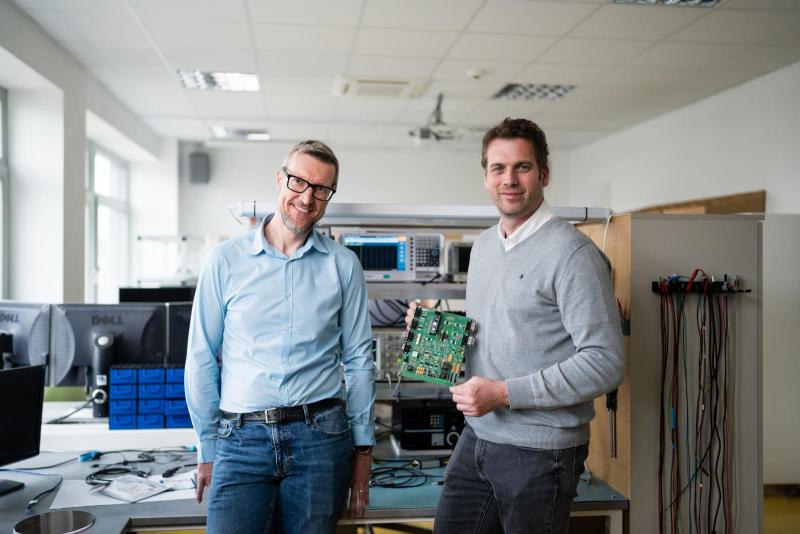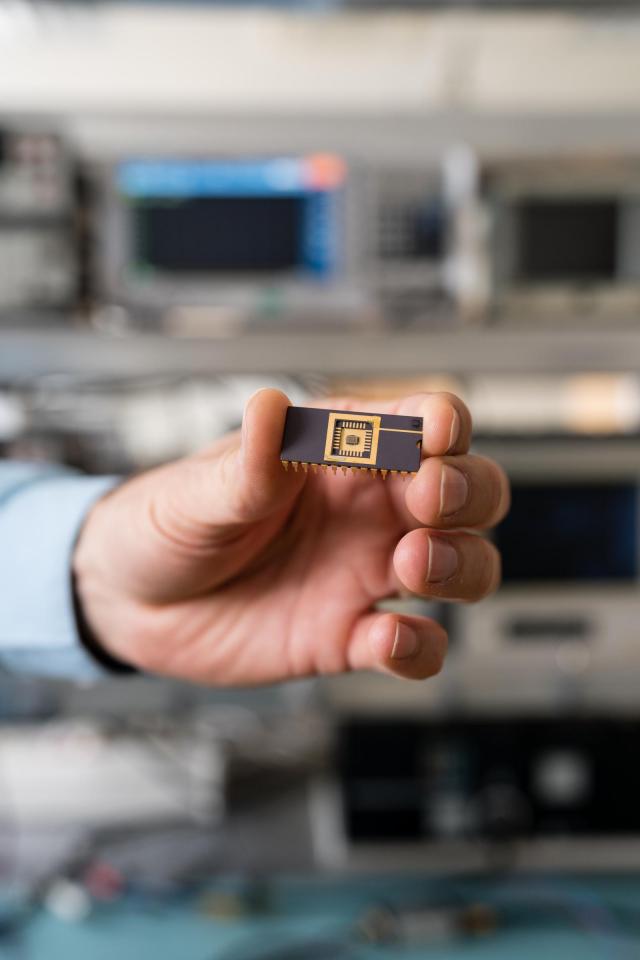Chips are in basically everything these days. For today's world based on modern technology, semiconductor materials and therefore chips are as important as electricity – you simply cannot do without them. That is why Brno University of Technology (BUT) conducts intensive chip research, particularly at the Department of Microelectronics at the Faculty of Electrical Engineering and Communication Technologies (FEEC) and CEITEC BUT. Their experts have achieved excellent results and are not only dealing with enquiries directly from the European Space Agency and other companies and organizations, but also represent BUT as a member of the Czech National Semiconductor Cluster (CNSC), which has now also become a part of Silicon Europe.
Jiří Háze and Lukáš Fujcik from the Department of Microelectronics | Autor: Jan Prokopius
BUT’s membership in Silicon Europe, the European cluster alliance for innovative electronic and software technologies, represents the highest possible prestige in this field in Europe. It represents more than 2000 companies and research institutions serving and supporting businesses in the fields of smart mobility, housing, health, and industry. Within the alliance, the CNSC aims to be a competitive cluster in the European Union (EU) through the Chips Act. This European Act strengthens Europe's resilience in semiconductor technologies and facilitates digital and green transition, from manufacturing technologies and processes, to encapsulation and implementation in target applications.
The close link between the CNSC and the Chip Act is crucial, as the implementation of its principles will lead to a more efficient cooperation, the creation of new know-how linked to the individual parts of the value chain, and the creation of new spin-off and start-up companies. The cluster will thus not only build and support entrepreneurship and innovation in the Czech Republic, but by linking the scientific and commercial spheres, it will also contribute to the increase of competitiveness between its members and to the development of talent in accordance with the demands of the market.
Autor: Jan ProkopiusThe CNSC was established in December 2022 and BUT became a member in April 2023. Associate Professor Jiří Háze, Head of the Institute of Microelectronics, was elected Vice-Chairman of the Board of Directors for Education and research and development. "I see this position as a reward for the work we have been doing at the institute in this area for many years and also as a commitment and opportunity for further advancement in chip design." The cluster joined Silicon Europe in July 2023.
BUT’s results stun even the chip superpower
BUT’s researchers met several times with representatives of the National Applied Research Laboratories (NARLABs). One of its members is Taiwan Semiconductor Manufacturing Company (TSMC) – a world leader in chip manufacturing. The Taiwanese were surprised by the advanced technologies at the disposal of BUT and its quality graduates in the field of microelectronics. "The Taiwanese liked Brno and are interested in building a design centre here, where they would work on the development of new chips and modern semiconductor materials. Both senior experts from Taiwan and skilled people from the Czech Republic would work there. Brno would truly live up to its nickname Silicon Hills," adds Háze.
Source: vut.cz/en
Author of the text: Mgr. Jana Vyklická

